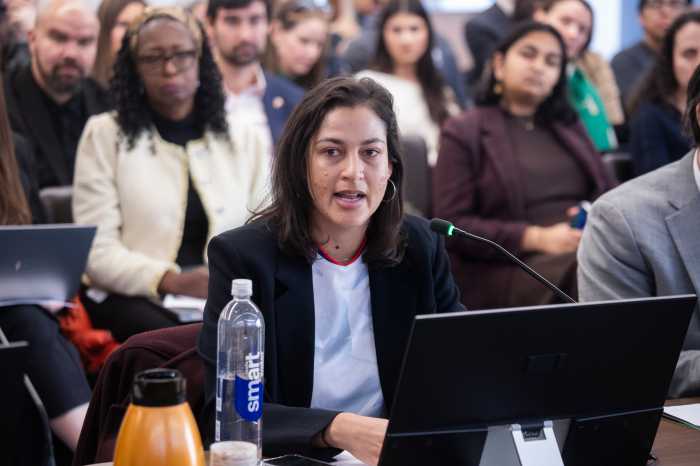By James DeWeese
Supporters of the legislation, including two Queens Democrats with strong ties to the financial services and real estate industries, said the reforms were necessary to rein in the vertiginous rise in personal bankruptcy claims over the past several years. But City Councilman Hiram Monserrate (D-Corona) and a handful of community advocacy groups contend the reforms will disproportionately affect low-income families and minorities by making it more difficult for them to get a fresh start.U.S. Reps. Joseph Crowley (D-Jackson Heights), a member of the House of Representatives' Committee on Financial Services, and Gregory Meeks (D-St.Albans) broke ranks with some top members of the New York Democratic congressional delegation to vote in favor of the legislation. “This new law does nothing but provide credit card companies and predatory lenders an easier opportunity to exploit this country's disadvantaged communities,” Monserrate said in a statement. “Bankruptcy rates in the city are rising higher than the nationwide average, and yet some of our elected officials chose to turn their backs on their own communities and support this sweetheart bill for the credit card industry.”The new law tightens the rules for Chapter 7 bankruptcy, which allows filers to erase all debt after liquidating certain non-exempt assets. The reforms will force certain debtors into costlier and lengthier Chapter 13 proceedings, which establish monthly repayment plans over a period of three to five years.Most of the provisions of the voluminous reform package will go into effect six months after Bush's signature. Many bankruptcy experts predicted a spike in filings as debtors race to claim bankruptcy before the new laws, which also impose stiff penalties on bankruptcy lawyers whose clients file fraudulent or incomplete claims, take hold.Last year 26,153 people filed for bankruptcy in the Eastern District of New York, which includes Queens County. The figure is higher than any other region of New York. According to the Administrative Office of U.S. Courts, more than 80 percent of those claims were Chapter 7 proceedings. Rali Mileva, a spokeswoman for the American Bankruptcy Institute, a non-partisan research organization, said research indicated three primary causes of personal bankruptcy claims: divorce, unemployment and medical bills.Credit card companies and financial institutions had long lobbied for the changes, saying they were necessary to protect them from what they called frivolous claims from “shop-and-drop debtors” who rack up big bills and then declare themselves bankrupt.”Nobody wants to declare bankruptcy, but unfortunately … the number of Americans who are choosing what used to be the last financial resort as the first option has been growing,” Crowley said in a statement released by his press secretary. “While the issue of credit card companies offering easy credit to consumers is one that should be cracked down on, the issue of the growing number of consumers declaring bankruptcy and walking away from their debt is also troubling.”A spokeswoman for Meeks said his office would not comment on the bankruptcy laws. According to opensecrets.org, an Internet watchdog that tracks campaign finances, real estate and credit industry companies are among Meeks' and Crowley's top contributors.The new scheme requires debtors who earn more than a state's median income – $65,520 for a family of four in New York – and have more than $100 a month in disposable income to file for Chapter 13 bankruptcy, a form of bankruptcy under which they must work out repayment plans with creditors, such as credit card companies. Debtors seeking to eradicate all debts under Chapter 7 also will have to wait eight years from their last bankruptcy before they can file again. The previous waiting period was six years.Under the new law, some debtors must pay for credit counseling before filing and participate in mandatory financial management courses.Reach reporter James DeWeese by e-mail at news@timesledger.com or by phone at 718-229-0300, Ext. 157.


































